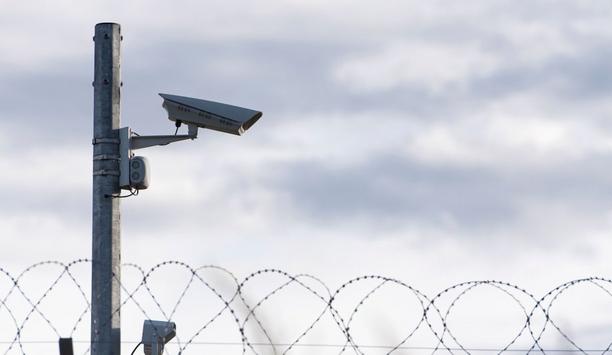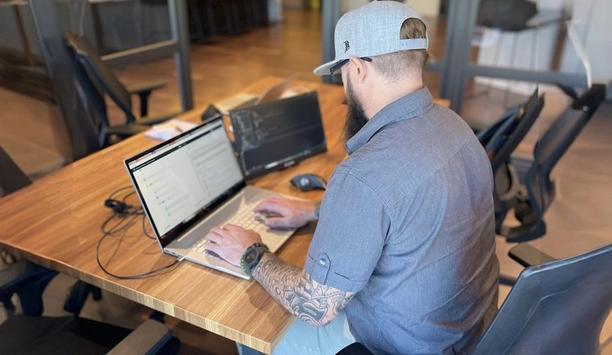There are big changes happening out there, and there will be big winners and big losers in the security industry, Prof Martin Gill told audiences at the recent Norbain LIVE! roadshows. In his words: are you up for it?
Martin Gill's first words set the tone: “One thing is certain; we are in a period of change. Some people will be winners and will win a lot; and some will be losers and will lose a lot. The winners and losers are being decided now.” Security Industry Authority regulation comes into it; but so do other reasons. The cost of guarding will go up, not only because of the cost of the SIA licence, but training. No longer can a guard firm recruit people who cannot speak English, because such people will not pass the competency test. Rather, guard firms will have to recruit people with different expectations, of rewards from pensions to career prospects. The impact of this? Martin Gill quoted industry arguments over a reduced number of guarding companies - “incredibly, no-one knows how many there are”. Of the estimated 1,800 guarding companies around, after regulation there might, he suggested, be 50 or 100; who knows?
Added value wanted
How will that affect the buyer of guarding? Clients, he suggested, are going to want added value. He quoted security managers and directors in the retail sector, whose problem is: they, in security, appreciate that guard costs will go up; but the strictly retail people in their organisation will ask; what is going to be better for the retailer, as a result of the cost? The mere SIA licensing may not impress the purely retail person - used to buying services besides security - enough. Here Martin Gill mentioned the Security Research Initiative, research done by his Leicester-based Perpetuity consultancy, sponsored by the security industry, such as distributor Norbain. One research task is to talk to security buyers about what they look for, how they see changes; expect that out next year.
What if ...
Moving to the ‘extended police family', he spoke of an ‘endemic barrier' to that idea of private sector and police co-operation. That is, chief constables cannot decide how many police officers or indeed civilians to employ in their force: the Home Office decides. Martin Gill mentioned the latest thinking: what if the Government gave the police their budget and left it to the police to decide the best mix of policing an area (which could include contract private security). That would give local authorities, he suggested, more options to hold the police to account. Next, the three-year Home Office-commissioned report into the effectiveness of CCTV. In brief, CCTV is a ‘fantastic tool' but despite good systems and good operators out there, much of the time the tool is ‘poorly managed'.
Globalisation
Martin Gill raised some wider social issues: such as the 24-hour culture of night-time life. Little thought has been given to security of that sector; and there are opportunities, he suggested. And as for globalisation, there is the prospect of having your CCTV monitored in Delhi. Globalisation brings risk issues, for any company, affecting brand reputation, - what if the African country where you manufacture cheaper products is thanks to child labour? What if outsourced staff are selling customer identities? Is security ‘up' for this, Martin Gill wondered; is the security industry able to come up with solutions to these sorts of questions, that business leaders will pose? He mentioned a US trend whereby security people speak in terms of being ‘protection professionals' or ‘assurance professionals', taking in business continuity, IT, fire safety, and human resources, using business concepts such as RoI (return on investment) to make business cases for doing security things and making savings for the company.
Hang on ...
Hang on: alarms are only as good as the response they generate; CCTV is only as good as the lighting, and how well cameras are reviewed; security officers may feel they are paid little and have a lot asked of them, while clients may feel those officers arrive late and are undisciplined. He pointed to how, almost never, there is a chain from a CCTV operator spotting an offence on camera; ringing the police; who respond; and arrest the suspect. Ending as he began, he asked again: who will be the winners? Who knows? But, he suggested, we have to start looking at changes; at what sorts of security work, and why. He ended with video footage (familiar to viewers of the recent Channel 4 documentary Secrets of the Shoplifters) of a shop thief walking around an unnamed store, giving a commentary on the electronic and guarding security. Martin Gill added that he is interviewing fraudsters who have taken at least £50,000. When such fraudsters or shop thieves are asked why they do it, their most common answer is: “Because it's easy.” How can it be, despite all the security measures? Hence Martin Gill's research - previously also with armed robbers - asking the criminals what they made of security at the places they raided. What the retailer or bank might regard as a sound security measure, the thief might welcome. The big security guard on the door of a store, to the manager, was a deterrent; to shoplifters, it was a stroke of luck - they could easily outrun the guard!

















